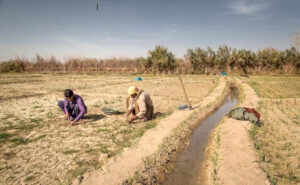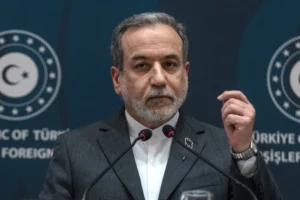KABUL (SW) – In a series of interviews, Afghan youngsters told Salam Watandar that the restrictions imposed by the Islamic Emirate coupled with dearth of recreational spots and avenues across the country have left them grapple with boredom.
The results of Salam Watandar’s conversation with 32 young boys and girls in 11 provinces show that 25 of them do not have access to their favorite entertainment avenues.
In this report, youths in Kabul, Jowzjan, Takhar, Kunduz, Bamyan, Badghis, Sar-e Pol, Farah, Kapisa, Nangarhar and Faryab provinces have shared their views.
Abdul Rahim Rashidi from Farah province, said: “In our country, the options of entertainment for young people are limited; it is very challenging and difficult for young people due to their economic problems and the lack of proper recreational parks. The current facilities for young people are not suitable for entertainment.”
Somaya from Kapisa, also said: “We don’t have any volleyball field to go to. Where should we go to entertain ourselves? Our relatives in Iran take pictures or movie clips when they are playing in the park there; especially women with their children.”
Young people report that the shortage of suitable recreational spots, the closure of parks to women, and economic challenges have hindered their ability to enjoy their leisure activities according to their preferences. Asad, from Kunduz province, says that having a stable job could improve Youths’ situation and allow them for more leisure activities.
Mohammad, from Bamyan province, also mentioned that the present entertainments are not sufficient for Afghan youths due to economic hardships. “Young people cannot have fun because of current limitations, security issues and lack of the suitable places.”
Among the 32 young people interviewed for this report, 16 are boys and 16 are girls. Based on the findings of the report, recreational activities for girls are primarily confined to activities within the home and the use of social media.
Tamana from Kunduz province, who spends her free time doing housework, using social media and reading books, says, “Some places where girls could have fun are banned and they are not allowed to go to entertain. We want to go and have fun, so our mind can be refreshed; but there is no such place in Kunduz. There are leisure places only for men to have fun, but not for girls or women at all.”
Shoghofa, a teacher in Jowzjan province, says that she enjoys visiting recreational and green spaces during her free time, however, nowadays, her biggest entertainment is spending time on social media. “Many times, when I am free, I watch funny TikToks on my mobile phone, take pictures, etc,” she said.
Going to recreational places and sport grounds, and spending free time with friends outdoor, are currently the types of entertainments only for boys.
Sayequllah Rahimi from Takhar, explains: “Still, the field of a suitable recreation is not very favorable for us. The Afghan youths, especially in Takhar province, are interested in football, futsal, other games and recreations, and to have a suitable lawn or good parks; but there is not any, contrarily, there are challenges and obstacles for youths to entertain.”
Khaled, a young man from Sar-e Pol, shares his experience: “During my free time, I enjoy playing futsal, whether it’s playing or watching. Sometimes, when I have the opportunity, I visit recreational spots and beautiful natural places that uplift the spirit and refresh the mind.”
Social experts and psychologists emphasize the crucial need for proper and healthy leisure activities in any community. They argue that the absence of proper recreational avenues can lead to mental health issues, social deviations, and a departure from a healthy lifestyle, resulting in social challenges.
Social expert Rashed Sediqi comments, “If we remove recreation and entertainment from people’s daily activities, it means we face a psychologically troubled society—one that suffers from numerous mental health issues. Such a society is difficult to be controlled and tends to experience higher rates of social deviations.”
Psychologist Haibatullah Ebrahimkhil adds, “Recreation is vital for our health and mental well-being, especially for those with various disorders and those aiming to stay healthy. Researches show that for individuals suffering from depression, medications and even counseling are not as effective as regular walking, going outdoors, and engaging in recreational activities.”
Women’s rights activists call for an end to restrictions imposed by the de-facto government of the Islamic Emirate on women and emphasize the need for recreational facilities to support women’s mental well-being and reduce anxiety.
Mahjuba Habibi, a women’s rights advocate, states, “Our demand from the government is to at least consider the youths by reopening recreational places. How long will this hopelessness continue? Everyone is truly discouraged with life. Some girls with access to phones are becoming mentally distressed.”
“Women have been deprived of their right to leisure and the current Afghan government’s restrictions on women have intensified,” said another advocate, Farahnaz Meraj. “Afghan women are not allowed to enjoy recreational areas, which is a significant harm to all women. Recreation reduces stress, and when a woman has sufficient leisure time daily or weekly, it greatly benefits her mental health.”
There were no comments from the de-facto officials at the Ministry of Information and Culture regarding youths recreation and their plans in this area.
Officials from the National Olympic Committee of the de-facto government say that sports facilities are available for youths across the country.
Atal Mashwani, spokesperson for the National Olympic Committee, says, “All activities of the sports department are aimed at engaging and providing suitable entertainment for the youths. Under the framework of sports department, 52 federations operate, each with representatives in provinces, where hundreds and thousands of youths are engaged in sports. Those interested in specific sports can easily use our gyms and sports facilities.”
Spokesperson for the Kabul Municipality Nematullah Barekzai also claims to be working on increasing recreational opportunities for the city’s young people. He mentions that there are around 141 active parks in Kabul city.
“The municipality plans to build a large recreational area in the Nader Khan Hill area. The main road connecting the area has been completed. This large park will offer extensive recreational facilities. Most of the 141 parks in Kabul have playground equipment for children,” Barekzai added.
Conversely, young girls report that the closure of recreational spots is a significant barrier to their leisure time.
However, Abdul Ghafar Farooq, spokesperson for the Ministry of Promotion of Virtue and Prevention of Vice (MoPVPV), informed Salam Watandar via text message that a few recreational areas remain closed to women due to issues of ‘modesty’.
“The reason for the closure of a number of recreational places is the non-observance of hijab by women and to prevent moral corruption,” he said.






